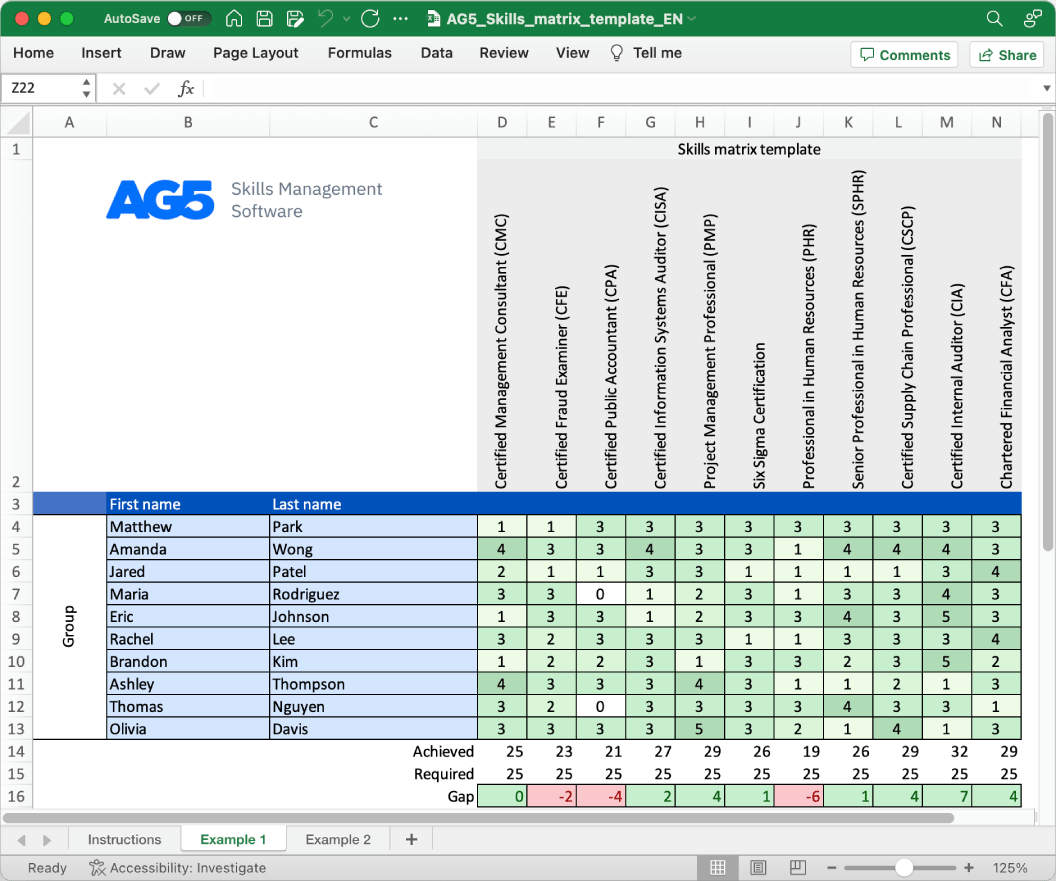Failure mode and effects analysis (FMEA) skills matrix template
A skills matrix is a tool teams can use to effectively manage and assess their FMEA skills and knowledge.
Download your free template here

Overview Copied
With our free FMEA skills matrix template, you will receive a clear overview of the skills that are present in your organization, as well as those that are missing. Using this information, you can develop and implement a plan to ensure that your employees’ skills are up to date, comprehensive, compliant, and ready for the future.
- Certified FMEA Practitioner (CFP)
- Certified FMEA Specialist (CFS)
- Certified FMEA Facilitator (CFF)
- Certified FMEA Analyst (CFA)
- Certified FMEA Team Leader (CFTL)
- Certified FMEA Moderator (CFM)
- Certified FMEA Auditor (CFA)
- Certified FMEA Consultant (CFC)
- Certified FMEA Trainer (CFT)
- Certified FMEA Engineer (CFE)
- Certified FMEA Moderator (CFM)
- Certified FMEA Master (CFM)
- Certified FMEA Coach (CFC)
- Certified FMEA Coordinator (CFC)
- Certified FMEA Practitioner (CFP)
- Certified FMEA Specialist (CFS)
- Certified FMEA Analyst (CFA)
- Certified FMEA Auditor (CFA)
- Certified FMEA Team Leader (CFTL)
- Certified FMEA Expert (CFE)
Benefits Copied
Skills management software is important in FMEA as it enables organizations to assess and manage the skills of employees involved in conducting FMEA studies, ensuring they possess the necessary expertise to identify and mitigate potential failure modes and their effects on product quality and safety.
Author Copied
Revisions Copied
Tired of managing skills in Excel?
Say goodbye to Excel matrices. Start using AG5’s plug and play skill matrix software.
Recognized by G2 for Excellence in Skills Management

